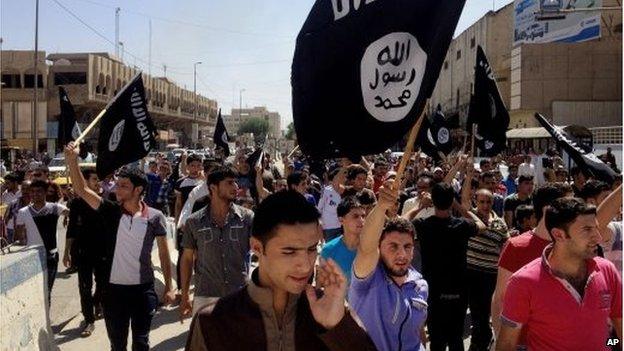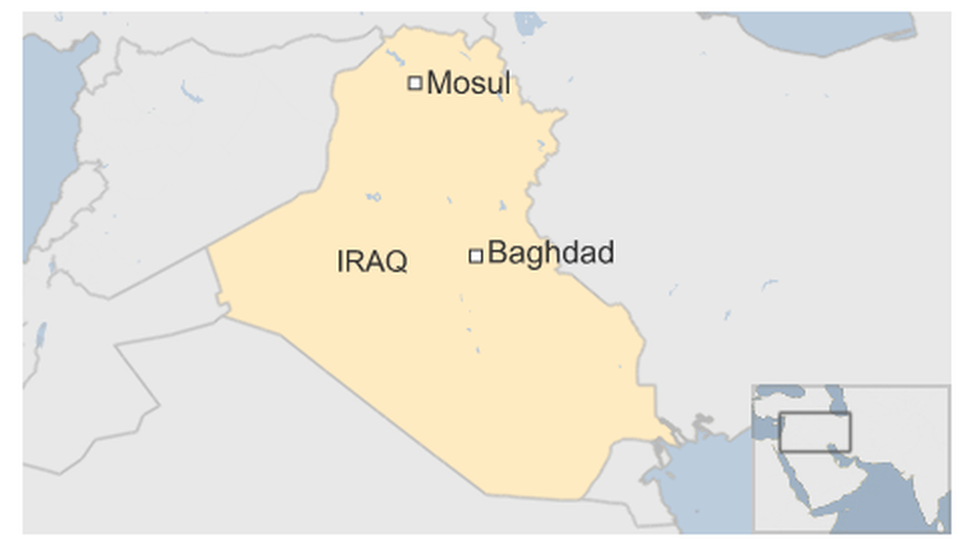Islamic State conflict: Iraqi forces launch operation to retake Mosul
- Published

IS took control of Mosul in June 2014
Iraqi forces have launched an operation to retake the northern city of Mosul from so-called Islamic State (IS), officials say.
The first part of the long-awaited offensive has recaptured several villages, the Iraqi military has said.
The operation has been supported by air strikes from the US-led coalition, Kurdish Peshmerga troops and a Shia-dominated paramilitary force.
Mosul, Iraq's second largest city, has been under IS rule since June 2014.
An offensive to retake the city, where two million people lived before IS took over, has been in preparation for months.
Officials say the aim is to seize it within the year, but experts have questioned the ability of Iraqi forces to do so.
Islamic State group: Crisis in seven charts
What is life like under IS in Mosul?
"The first phase of the Fatah [Conquest] Operation has been launched at dawn to liberate Nineveh [province], raising the Iraqi flag in several villages," the military said in a statement read on Iraqi state TV.

The Iraqi army has scored important gains against IS recently, including retaking the western city of Ramadi, in Anbar province.
Mosul is the biggest city ruled by the militants, who control large swathes of territory in both Iraq and Syria.
Analysts say an offensive there would be the biggest counterattack ever mounted against the group, but they have warned the battle to retake it could be difficult, given the significant number of jihadists and civilians and the time IS has had to prepare itself.
The assault was launched early on Thursday from the Makhmour area, around 60km (40 miles) south of Mosul. Thousands of Iraqi forces personnel have been recently deployed there.
The goal is to secure this area and make it a safe point from where troops coming from the capital, Baghdad, will be able to launch incursions and encircle Mosul, along with the northern areas controlled by Kurdish Peshmerga forces, a senior security source said.
The army named the villages recaptured as Mahana, Kdailah , Krmurde and Khabandan.